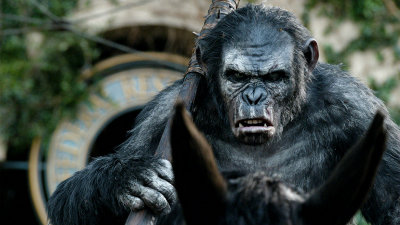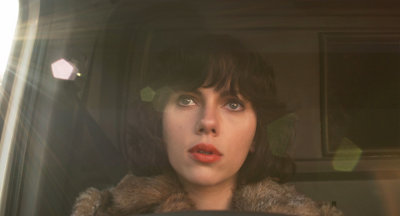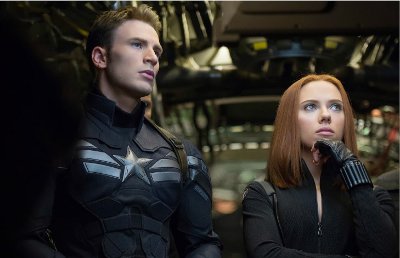Only a few weeks late this year, I’ve done a much better job keeping up than the past couple years. As of right now, I’ve seen 75 movies that could be considered a 2014 release (as per usual, there are borderline cases where, for instance, a 2013 movie sneaks onto the list because it only played festivals or foreign markets in that year and wasn’t really available for me to watch). More than your typical moviegoer, but probably significantly less than your typical critic. But I caught up with a significant portion of that list in the past month or so, and am finally able to commence the ninth annual Kaedrin Movie Awards. [Previous Installments here: 2006 | 2007 | 2008 | 2009 | 2010 | 2011 | 2012 | 2013]
Same general rules apply: Must be a 2014 release (with caveats mentioned above) and I obviously have to have seen the movie (and while I have seen a lot of movies, I don’t pretend to have seen a comprehensive selection). Standard disclaimers about subjectivity and personal preference, because who wants to live in a world where we all liked the same stuff for the same reasons? That would be a boring world. So let’s get to it:
Best Villain/Badass
It often feels like a given year can only have great villains or great heroes, but not both. For instance, last year was a terrible year for villainy (and a rather good one for heroism). Not so this year! I had no problem populating both categories, and there’s some solid choices on both lists. As with previous years, my picks in this category are limited to individuals, not groups (i.e. no vampires or zombies as a general menace, etc…)
Best Hero/Badass
As mentioned above, this was a good year for heroism too, perhaps a slight overmatch for the villainy, but that’s the way these things should work. Again limited to individuals and not groups (so I only grabbed one Guardian of the Galaxy, even if I liked the whole group!)
Best Comedic Performance
This category gets tougher every year and I find I need to just pick an individual from an ensemble that is representative of the movie. Perhaps I should just bite the bullet and change this to Comedic Ensemble or something. That being said, lots to choose from this year:
Breakthrough Performance
Always an interesting category to populate, I feel like the big actor showcases this year were all about people I was already very familiar with (notably something like Birdman). As with previous years, my main criteria for this category was if I watched a movie, then immediately looking up the actor/actress on IMDB to see what else they’ve done (or where they came from). This can sometimes even happen for a long established actor, so yes, I already know who Tyler Perry was, but I didn’t know he was doing stuff like this. Yes, the criteria is vague, but the fun of these awards is that they’re supposed to be idiosyncratic and weird:
Most Visually Stunning
Sometimes even bad movies can look really great… and we’ve got a pretty interesting mix of stuff this year. Indeed, this category is downright stuffed:
Best Sci-Fi or Horror Film
I like to give a little love to my favorite genres, hence this category. When I started this category, I always had trouble finding good SF movies, so I had to pad out the category with horror. But we’ve seen a big flourish in independent, micro-budget SF over the past few years, such that SF is kinda leading the charge these days.
Best Sequel/Reboot
Usually a very difficult category to populate, I had no problems at all this year.
Biggest Disappointment
A surprisingly difficult category to populate. Usually, I can think of a few additional movies that would fit, and it’s not like there weren’t a bunch of movies I saw that I didn’t enjoy, I just wasn’t expecting much of those movies so I couldn’t really be that disappointed… Interestingly, they’re all sequels, and most of them aren’t really that bad, they were just disappointing.
Best Action Sequences
This award isn’t for individual action sequences, but rather an overall estimation of each film, and it’s been a rather fantastic year for action movies…
Best Plot Twist/Surprise
Well, I suppose even listing nominees here constitutes something of a spoiler, but it’s a risk we’ll have to take, right?
Best High Concept Film
This is always a strange category to populate because the idea itself is a bit nebulous, but nevertheless, there are always a few interesting choices…
2014’s 2013 Movie of the Year
This category gets more difficult every year, but there are some good choices this year, and I’m definitely going to have a couple good options next year…
So it looks like Guardians of the Galaxy and The Lego Movie are leading the way with 5 nominations apiece, followed closely by Captain America: The Winter Soldier, Gone Girl, and Inherent Vice with 4 nominations. And the list expands as we go from there (5 movies with 3 noms, 8 with 2, and even more with just a single nod). So I’m going to noodle these nominations for a week and announce the winners next Sunday, followed by the traditional Arbitrary Awards and hopefullly, a full top 10 list for 2014. This should be all wrapped up before the Oscars, which I guess I’ll be live-tweeting or something again this year. Stay tuned!



